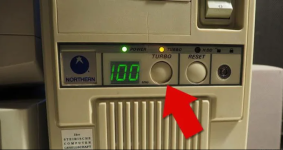Man of Honour
- Joined
- 23 Mar 2011
- Posts
- 18,093
- Location
- West Side
Games that are having trouble with the big core little core archetrcture can now be played.
MSI solved one of Intel Alder Lake's biggest drawback with a bios tweak .
The workaround was found first by PCMag, which detailed how it works. Some Asus and MSI motherboards have a BIOS setting called "Legacy Game Compatibility Mode", which you need to turn on. Then, once you launch a game, simply press the Scroll Lock key and the game should run.
https://www.google.co.uk/amp/s/www....der-lakes-biggest-drawbacks-with-a-bios-tweak
MSI solved one of Intel Alder Lake's biggest drawback with a bios tweak .
The workaround was found first by PCMag, which detailed how it works. Some Asus and MSI motherboards have a BIOS setting called "Legacy Game Compatibility Mode", which you need to turn on. Then, once you launch a game, simply press the Scroll Lock key and the game should run.
https://www.google.co.uk/amp/s/www....der-lakes-biggest-drawbacks-with-a-bios-tweak
Last edited:






 , so was just damn confusing sometimes depending on pc brand.
, so was just damn confusing sometimes depending on pc brand.